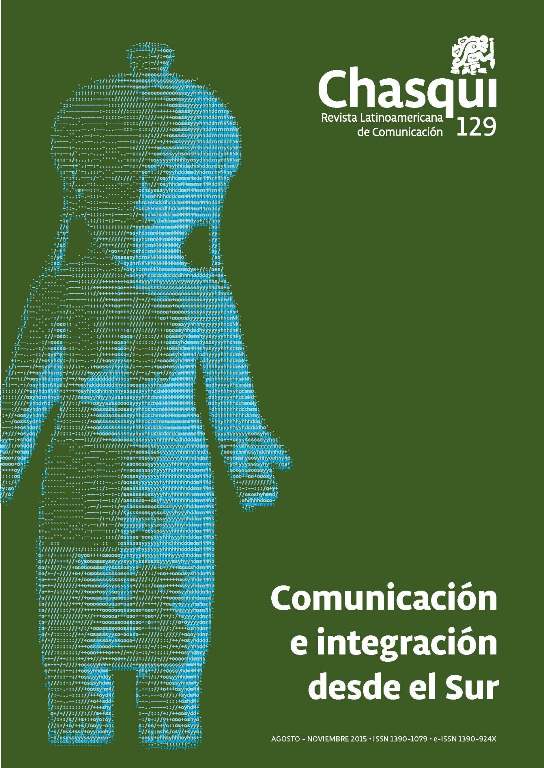Competences and the brazilian journalist education: thinking upon new learning methodologies
DOI:
https://doi.org/10.16921/chasqui.v0i129.2616Keywords:
Project Based Learning, curriculum directives, teaching background, skills, ability, knowledgeAbstract
The hability to articulate graduation disciplines through new learning methodologies based on projects, as Project Based Learning (PBL) and the accomplishment of the researches projects comprises the necessary knowledge bases for the improvement of the learning and teaching relation that is required by the graduating student in an implantation scenery of the new National Curriculum Directives for the Journalism courses in the Brazilian universities. Therefore, in the context of this work, the competences concept is studied as part of a new process, that meets its highest point in the 21st Century, due to the tecnological innovation, Information Technology development and the deep chance in the Brazilian journalist professional practices.References
Barton, A. H.; Lazarsfeld, P.F. (1956). Some functions of qualitative analysis in social research. New York: Columbia University Press.
Bastos, Hélder. (2000). Jornalismo electrónico: internet e reconfiguração de práticas nas redacções. Coimbra: Minerva.
Creswell, John W. (2010). Projeto de Pesquisa: métodos qualitativo, quantitativo e misto. Porto Alegre: Artmed.
Dizard JR., Wilson. (2000). A nova mídia: a comunicação de massa na era da informação. Rio de Janeiro: Zahar.
Figaro, R. (2013). As mudanças no mundo do trabalho do jornalista. São Paulo: Editora Atlas.
Lima, Suzana M. V. (Org.) (2003). Mudança organizacional: teoria e gestão. Rio de Janeiro: Editora FGV.
March, James G. (1981). Footnotes to organizational change. Administrative Science Quarterly, Ithaca, v. 26, n. 4, p. 563-577.
Motta, Fernando C.; Vasconcelos, Isabela F.F. Gouveia de; Wood JR., Thomaz. (2009). O novo sentido da liderança: controle social nas organizações. In: WOOD JR., Thomaz. (Org.) Mudança organizacional. 5. ed. São Paulo: Editora Atlas.
Pavlick, John. (1996). New media technologies and the information highway. New York: Allyn & Bacon.
Santos, Rogério. (1997). A negociação entre jornalistas e fontes. Coimbra: Minerva.
Waterman Jr.., Robert H. (1987). The reneval factor: how the best get and keep the competitive edge. New York: Bantam.
Wood Jr.., Thomaz. (Org.). (2009). Mudança Organizacional. São Paulo: Editora Atlas.
Wood JR., Thomaz; Curado, Isabela B.; Campos, Humberto M. (2009). Mudança organizacional na Rhodia Farma. In: WOOD JR., Thomaz. (Org.). Mudança organizacional. São Paulo: Editora Atlas.
Downloads
Published
Issue
Section
License
- Authors retain copyright and grant the journal right of first publication with the work simultaneously licensed under a Creative Commons Attribution-NoDerivs License (CC BY-ND) that allows others to share the work with an acknowledgement of the work's authorship and initial publication in this journal.
- Authors are able to enter into separate, additional contractual arrangements for the non-exclusive distribution of the journal's published version of the work (e.g., post it to an institutional repository or publish it in a book), with an acknowledgement of its initial publication in this journal.
- Authors are permitted and encouraged to post their work online.

